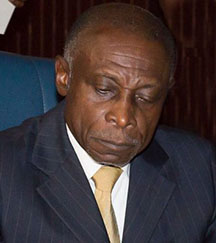Diplomacy
At the softer end of the continuum of foreign policy instruments lie diplomacy and culture. Diplomacy is the human face of protecting interests in international politics, as well as a crucial instrument for building inter-national stability. In these two competing roles lies the source of much of the argument over whether diplomacy is anachronistic and reactionary, or peace-building and indispensable. The confusion is compounded because of the fact that most diplomatic agency is still the preserve of states, with the UN Secretary-General and other international civil servants outnumbered and limited by their dependence on the major powers (Barston, 2013; Berridge, 2010; Berridge and James, 2003; R. Cohen, 1987; Hamilton and Langhorne; 1994; Watson, 1982).
Professional diplomats do not have a monopoly on diplomacy. As we saw in Chapter 4, many parts of the state machinery, apart from the ministry of foreign affairs, now engage in international relations. As such, they are effectively required to practise diplomacy in their dealings with foreign counterparts. In this respect all agents of the state should in principle liaise with their diplomat colleagues. If Sierra Leone had had an effective diplomatic cadre, for example, its 27-year-old president would probably not have come within an ace of expelling the ambassador of its biggest aid donor (Germany) in 1993. For their part, the specialists are fighting a losing battle if they seek to preserve a monopoly over diplomacy. They need to work with their ‘domestic’ colleagues, not least because of the increasingly important domestic dimension of foreign policy (R. Cohen, 1998; Kennan, 1997).
As a means of implementing policy, weak states rely on diplomacy. With few resources they have no choice but to play a poor hand as skilfully as possible. Yet they are also the states with the smallest and least experienced diplomatic services. Major powers ensure that they possess large and effective foreign services and rely on diplomacy for the bulk of their external activity. Radical governments may start with Trotsky’s aim of ‘issuing some revolutionary proclamations to the people before shutting the shop’, but they soon turn to conventional methods in the attempt to come to terms with an insistent outside world. For in practice, diplomacy is always central to any kind of action, from crisis management through long-drawn-out negotiations to routine but sensitive matters such as diplomatic exemptions from parking fines. Only unsophisticated regimes rely on bluster and the delusions of power.

